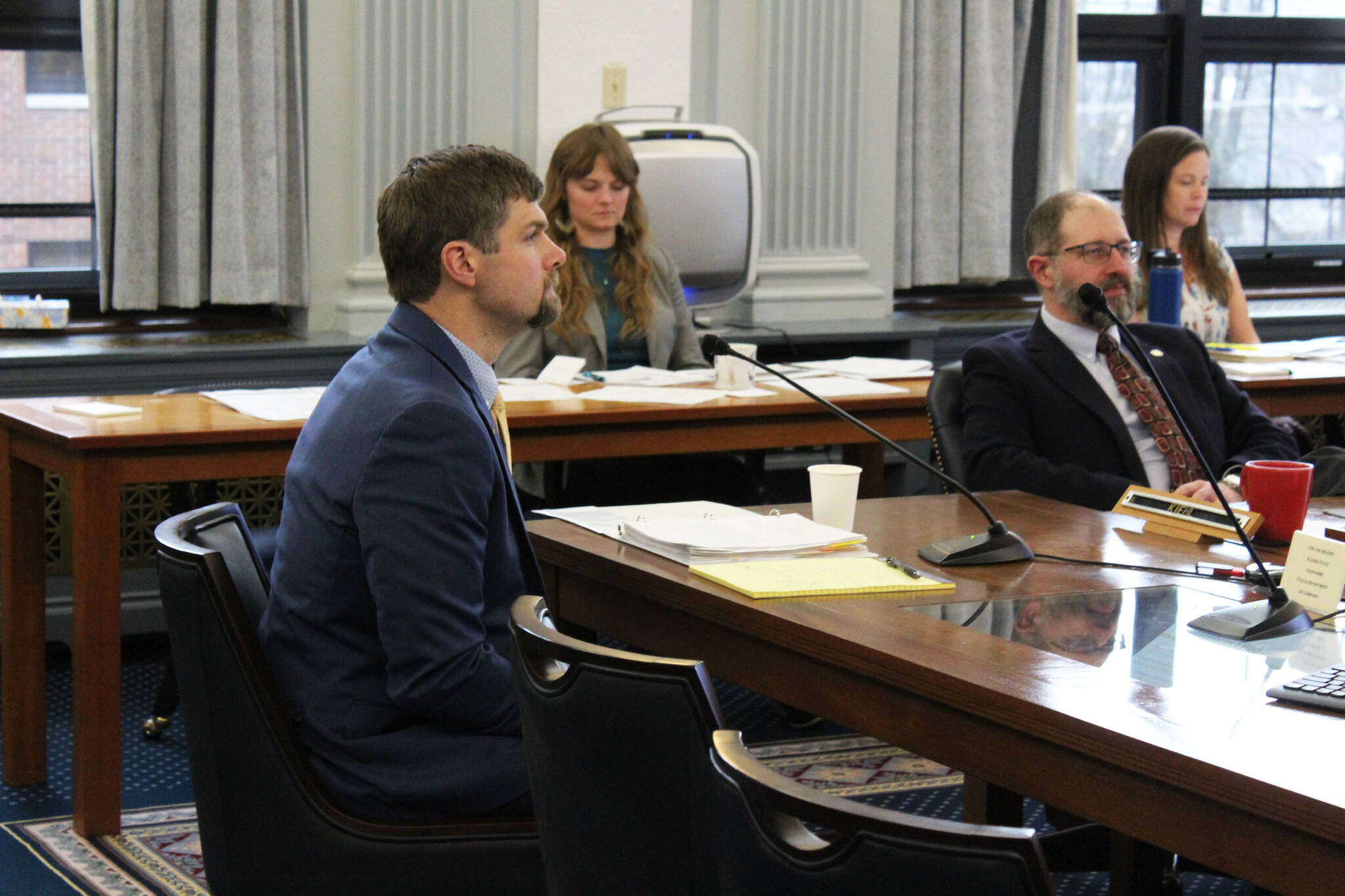JUNEAU — Alaska’s K-12 teachers who are certified with the National Board for Professional Teaching Standards would be eligible for an annual $5,000 bonus under legislation voted out of the Senate Education Committee on Monday.
The bill, sponsored by Sen. Jesse Bjorkman, R-Nikiski, would add Alaska to the list of states that compensate teachers in some way for becoming nationally certified with the group, which is independent and nonprofit, with a stated mission of advancing the quality of teaching and learning by helping teachers voluntarily meet rigorous teaching standards.
Under the version of the bill passed out of committee this week, teachers who are already or become nationally certified would be eligible for a $5,000 incentive payment each January if they hold a current and valid national board certification. Teachers would also be compensated for any costs they incur while obtaining the certification.
The Alaska Department of Education and Early Development estimates that the bonus program would apply to about 215 of Alaska’s estimated 7,315 teachers — about 3%.
In bringing the bill forward, Bjorkman wrote in his sponsor statement that his intention to provide incentives for Alaska’s highest-quality teachers to remain working in state. Teachers who have achieved such a certification, Bjorkman wrote, are “most capable” of teaching Alaska’s diverse student population.
“As our school districts look at a variety of issues regarding recruitment and retention of teachers, as well as poor educational outcomes for students, please consider this piece of legislation, as it has the potential to retain teachers already certified, and to encourage more teachers to undergo the rigorous process of attaining that certification,” Bjorkman’s sponsor statement says.
Bjorkman, who teaches social studies at Nikiski Middle/High School, said Tuesday that he is not nationally certified and would therefore not be eligible for the bonus.
The bill, if passed, would cost the state just over $1 million per year. That’s according to a financial analysis of the legislation prepared by Kathy Moffit, the director of innovation and education excellence with the Alaska Department of Education and Early Development. Moffit said the department estimates it would make 215 incentive payments each year.
Members of the Senate Education Committee on Feb. 14 heard from Sarah Pinsky, the senior policy director for the National Board for Professional Teaching Standards, who outlined the benefits of having teachers that are nationally certified and how the certification process works.
Pinsky described board certification as an advanced credential that signifies that a teacher is an instructional expert in their grade and subject level. The process requires teachers to demonstrate the impact they have on student learning by submitting samples of their students’ work, videos of them teaching and a reflection and analysis of their work.
“The national board certification process itself is quite rigorous,” Pinsky said. “It’s a performance-based process that requires teachers to demonstrate evidence of the impact they have on student learning.”
She cited numerous studies that she said point to the benefits of national board certification.
One out of Mississippi, for example, found that kindergarten students taught by an educator with national board certification are 31% more likely to be proficient on the Kindergarten Readiness Assessment. Others have found that nationally certified teachers stay in the profession longer and are more likely to host student teachers.
The bill now heads to the Senate Finance Committee for consideration. It must also pass the full Senate and then move through the House before it can be considered by Gov. Mike Dunleavy.
Monday’s vote came a day before Dunleavy said he would veto a comprehensive legislation package passed by state lawmakers if they do not also approve some of his other education priorities, such as annual bonuses of up to $15,000 for teachers. Bjorkman’s bill falls short of Dunleavy’s proposal but was floated by Senate leadership Tuesday as a possible vehicle for that initiative.
Reach reporter Ashlyn O’Hara at ashlyn.ohara@peninsulaclarion.com.
This reporting from the State Capitol was made possible by the Alaska Center for Excellence in Journalism’s Legislative Reporter Exchange. Alaska news outlets, please contact Erin Thompson at editor@peninsulaclarion.com to republish this story.

